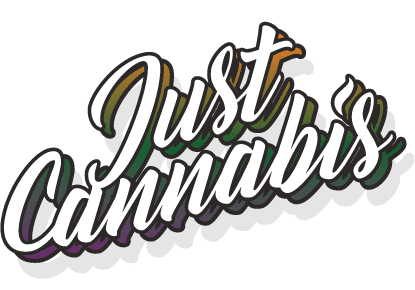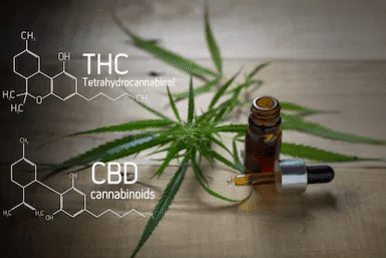Cannabis 101
CBD vs. THC: Differences Between Cannabis’ Most Popular Cannabinoids
CBD vs. THC: Differences Between Cannabis’ Most Popular Cannabinoids
While the cannabis plant has hundreds of naturally occurring cannabinoids, Cannabidiol (CBD) and delta-9-tetrahydrocannabinol (THC) are the most famous and highly researched. Collectively referred to as phytocannabinoids, these two interact with the mammalian endocannabinoid system to help manage or cure a variety of health conditions.
Phytocannabinoids differ in many ways and come with very specific uses. One of the most notable differences between the two has to be their conflicting physiological effects. Despite both being marijuana’s most active compounds, they don’t interact with the same receptors in the endocannabinoid system.
As such, CBD tends to be non-psychotropic and is highly unlikely to get you high, but THC is highly psychotropic and is responsible for the ‘high’ associated with ingesting marijuana.
While CBD is very good at improving memory and overall brain function, THC is the exact opposite; the cannabinoid can weaken memory and interfere with cognition.
Being a highly psychotropic cannabinoid, THC can help people manage a variety of mental illnesses, including chronic stress, depression and psychological trauma. However, it may also aggravate symptoms of depression and anxiety, especially if the user surpasses their tolerance levels. CBD, on the other hand, is good at easing anxiety and can improve your overall mental health.
CBD vs. THC: How Do They Work?

When you ingest marijuana, both CBD and THC rapidly travel to the endocannabinoid system, which includes both the peripheral nervous system and the central nervous system. Here the two cannabinoids attach to the CB1 cannabinoid receptor, where THC stimulates it to create the euphoric ‘high’ you experience when you consume cannabis.
The ‘high’ feeling alters brain function leading to short-term changes in behaviour, mood, consciousness, and perception.
Unlike THC, CBD works by changing the chemical structure and shape of the CB1 receptor, making it difficult for THC to stimulate it and cause all these psychotropic effects. In simple terms, CBD works against the psychotropic activities of THC.
Given the increased usage of cannabis products as well as the increasingly sophisticated screening techniques, many people cannot help but wonder just how much time CBD and THC take to get out of your system.
Well, studies show that the time these cannabis’ active compounds remain detectable in your system is influenced by a number of factors including dosage, frequency of use, your metabolism, and the method of administration.
According to a 2007 report, CBD remains detectable in the system up to 3 days after smoking. Another 2005 study concluded that CBD and THC only remains detectable in the system for approximately six hours after consumption.
CBD vs. THC: Benefits
People have used cannabis’ most active cannabinoids for many years to ease pain and cure/manage a whole range of medical conditions. Notable CBD and THC benefits include:
CBD Benefits
- Arthritis Pain
According to a recent report, people living with arthritis can use CBD to deal with the pain associated with the condition.
- Multiple Sclerosis
Multiple Sclerosis is a common disease known for the severe muscle spasms it causes to the body. MS mostly affects the brain and nerves, where it causes constant pain. A recent study found out that CBD oil can help with the symptoms of MS.
- Chronic Pain
According to this report, people who battle with chronic pain can rely on CBD to ease the pain and minimize inflammation.
Other Benefits of CBD
- Treating anxiety
- Epilepsy and seizure treatment
- Treating Alzheimer’s and schizophrenia
- Helping people looking to quit smoking
- Cancer treatment, diabetes, and acne
THC Benefits
Like CBD, THC can also be used to treat and manage various medical conditions including:
- Muscle Sclerosis (MS)
- Loss of sleep or insomnia
- Lack of appetite
- Glaucoma
- Eases chronic pain, unsettled stomach, and anxiety
CBD vs. THC: Side Effects
Despite having a wide range of medical benefits, CBD and THC can have some adverse reactions, especially when the user exceeds their tolerance levels. Popular side effects include:
CBD Side Effects
- Weight loss or weight gain
- Drowsiness
- Diarrhea
- CBD can reduce the effectiveness of other medications
Before using CBD to treat or manage your medical conditions, we highly suggest discussing it with your health provider. Your health provider will keep an eye on any changes and help you make proper adjustments.
Additionally, talking to a health provider before using CBD is very important because the cannabinoid may react with certain medications and significantly mess up with their effectiveness.
CBD may also disrupt the activity of certain enzymes, especially enzyme cytochrome P450 complex, which works closely with the liver in the process of breaking down toxins. Interfering with the activity of this enzyme may result in liver toxicity.
THC Side Effects
Moby Dick Strain and the good old Love Potion Strain are some of the best sources of THC. Not only are these strains good at energizing the body, uplifting mood and spirit, and creating out of this world euphoric highs, their high THC levels can cause mild side effects, which fade away a few hours after consumption.
Some of these effects include:
- Red and itchy eyes
- Dry eyes
- Slower response time
- Increased heart rate
- Memory loss
- Issues with perception and consciousness
CBD vs. THC: How to Take CBD and THC
Ways to Take CBD

CBD oils and tinctures are taken sublingually using a dropper. These cannabis products are made by combining CBD with naturally occurring oils such as hemp seed and coconut oils.
Besides CBD and essential oils, tinctures may also include additional ingredients including ethanol and vinegar
You can also add CBD to food and drinks. Foods and beverages containing CBD are often referred to as edibles and can be prepared at home or purchased from a cannabis store. Examples of edibles include CBD gummies produced by Twisted Extracts.
Online weed stores in Canada also offer CBD to customers in the form of lotions and creams. In most cases, these types of cannabis products are used by patients dealing with inflammation, chronic pain, arthritis, and muscle sclerosis.
- CBD Skin Patches
These are little adhesive patches containing CBD and are available in two forms namely
- Matrix patches
- Reservoir patches
You can buy CBD Skin Patches from your favourite weed dispensary and enjoy a more discreet way of ingesting CBD.
Also known as vaping, this method of ingesting marijuana requires a tool known as a vape. The good news is that the market is full of high-quality vape pens giving users an opportunity to choose their most preferred product.
Users looking to take their vaping experience to a whole new level should try out one of our favourite vaping tools — Flyte Pen (Keyy Pen). It’s high-quality, high-tech and very sleek. Alternately, you can try Diamond Concentrates CBD cartridges.
Ways to Take THC

Like CBD, there are a handful of ways to ingest THC including
CBD vs. THC: Which one’s Right for You?
CBD and THC are important cannabis compounds with a whole lot of medical benefits. Although similar in a variety of ways, THC is highly psychoactive, meaning it makes people ‘high’, while CBD does not.
Users need to familiarize themselves with the benefits as well as the side effects of each cannabinoid in order to have a rough idea of what to expect.
CBD and THC Laws in Canada
Recreational marijuana is legal in Canada under the 2018 Canada’s Cannabis Act. However, there are still some controversies surrounding what cannabis products are legal.
CBD oil in Canada and THC derived from marijuana plants are legal and can be consumed for both recreational and medicinal purposes.
Canadians above the age of 19 can buy CBD and THC products from licensed stores online legally.









